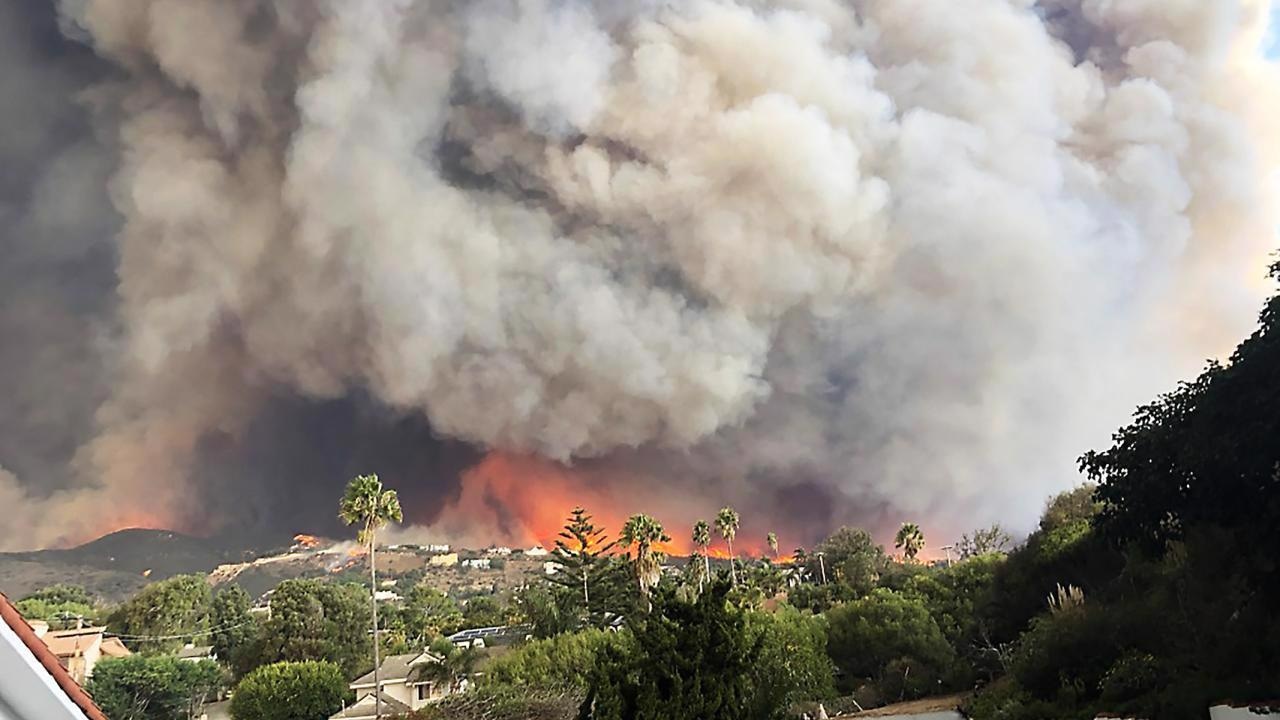According to a study performed at the University of California, Davis (UC Davis) aerosols carried in wildfire smoke plumes that are hundreds of hours old can still impact climate.
 Wildfire smoke from the Woolsey Fire billows over the sky in Malibu, California in November 2018. Aerosols in smoke plumes hundreds of hours old can still affect climate change, a UC Davis study shows. Image Credit: Getty.
Wildfire smoke from the Woolsey Fire billows over the sky in Malibu, California in November 2018. Aerosols in smoke plumes hundreds of hours old can still affect climate change, a UC Davis study shows. Image Credit: Getty.
The study indicates that wildfire emissions that are even 10 days old could impact the properties of aerosols — suspended liquid or particles that is the main factor in the formation of clouds.
The study has been reported in the Environmental Science and Technology journal.
Research performed in aerosols and particulate matter pollution connected to wildfires often concentrated on the early hours of smoke plumes, not in the days after once the smoke has traveled to other regions.
Enhancing Modeling
The study fills the knowledge gap and it could inform future predictions regarding the climate and atmospheric effects of wildfire over the lifetime of aerosols, especially in rural or pristine regions with comparatively clean air, stated Qi Zhang, an environmental toxicology professor and lead author of the study.
These parameters are really useful for atmospheric and chemical models. It’s a really important component to solving the effects on climate. To capture those characteristics is super critical.
Qi Zhang, Study Lead Author and Professor, Environmental Toxicology, University of California, Davis
Zhang, Ph.D. student Ryan Farley and others, in 2019, spent time at the Mount Bachelor Observatory situated at the top of a volcanic mountain in Oregon. That year was comparatively calm relating to wildfire, but smoke plumes and aerosols were still noted. Few were at least 10 days old and came from as close as Northern California and as far as Siberia, Russia.
The aerosols’ properties and chemical composition can do numerous things: scatter or absorb solar radiation impacting temperature, seed clouds to generate rain or snow, or alter the reflectivity of clouds—all of which impact climate.
Aerosol Properties Change with Age
Researchers discovered that the concentrations of particulate matter were low, but oxidized organic aerosols from burning biomass — like grasses, trees, and shrubs — were detected across the samples.
The aerosols having a life cycle of nearly two weeks were bigger in aged samples than in those found shortly following the beginning of a fire.
The properties of the smoke determine the effects on the climate. The really aged aerosols can behave very differently than the fresh ones. You want to capture these aerosols over the lifetime to properly account for the effects.
Qi Zhang, Study Lead Author and Professor, Environmental Toxicology, University of California, Davis
Aerosols in the Background
Older aerosols that are generated by wildfires could be present but not clear and still impact climate.
It’s not something you just notice but it’s in the background. Knowing that information becomes ever more important as “biomass burning has become more and more frequent.
Qi Zhang, Study Lead Author and Professor, Environmental Toxicology, University of California, Davis
Shan Zhou and Sonya Collier from UC Davis took part in the study as did researchers from the University of Montana and University of Washington.
This study was financially supported by the National Science Foundation, the U.S. Department of Energy’s Atmospheric System Research Program, the California Agricultural Experiment Station, and UC Davis.
Journal Reference:
Farley, R., et al. (2022) Persistent Influence of Wildfire Emissions in the Western United States and Characteristics of Aged Biomass Burning Organic Aerosols under Clean Air Conditions. Environmental Science & Technology. doi.org/10.1021/acs.est.1c07301.